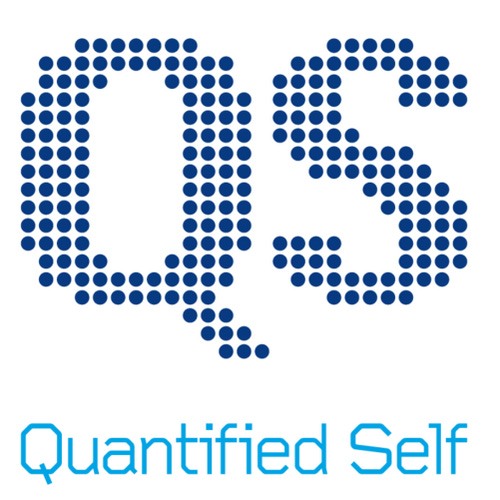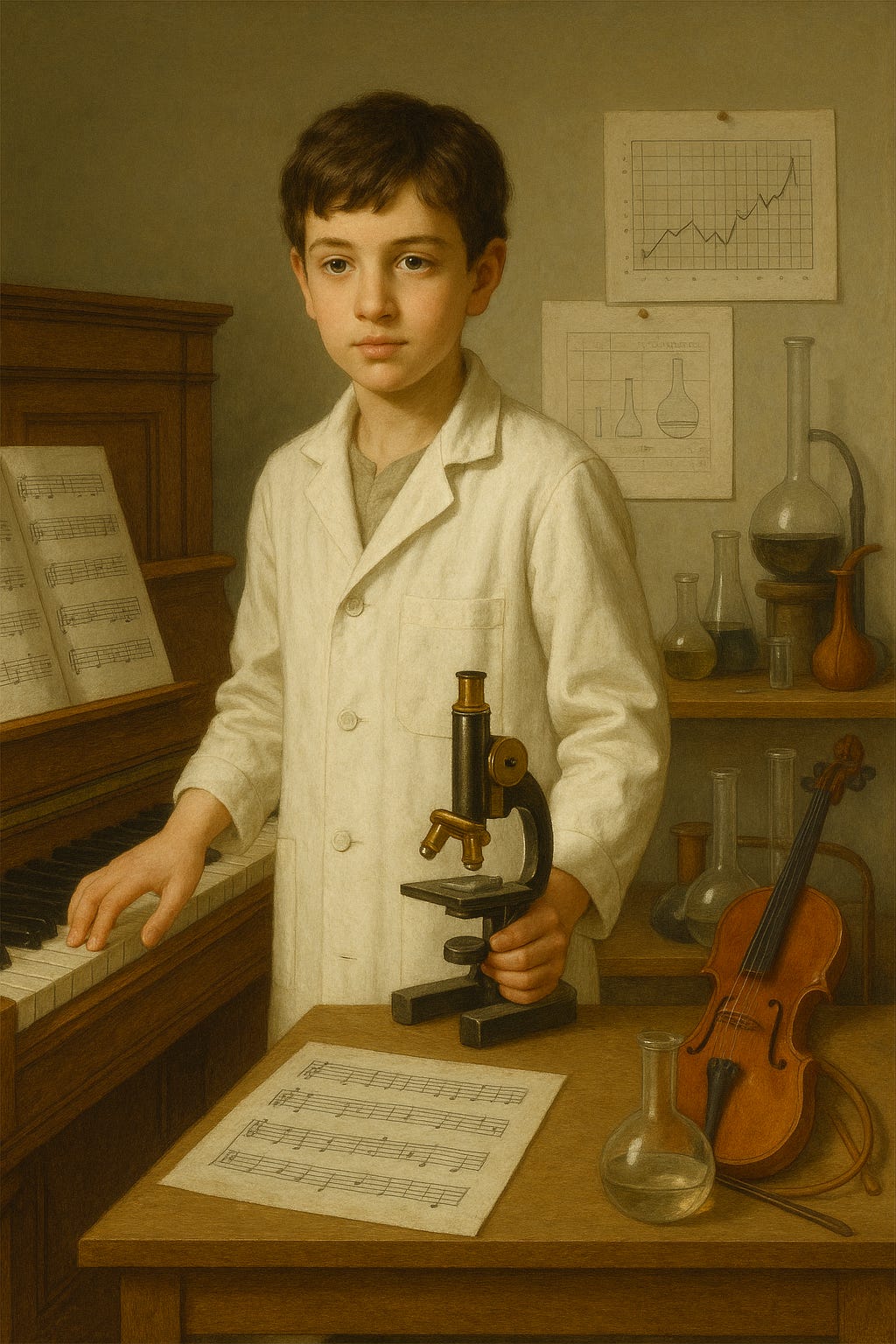Personal Science Week - 250717 Amateurs
Empirical thinking shouldn't be left to the professionals, plus more readings
Serious personal scientists want to learn from everyone, including professionals.
This week we'll discuss a recent podcast interview with Quantified Self co-founder Gary Wolf, whose conversation with David Lang on Amateur Technology raises important points about empirical discovery and normal people.
Amateurs Are Everywhere
When Gary Wolf co-invented the term “Quantified Self” (QS) and its associated meetups, he was quickly overwhelmed at the response from everyday people who were already doing highly sophisticated everyday experiments and analysis.
In a recent podcast discussion with entrepreneur David Lang, he recounts the surprising interest from the public in those early days, along with important lessons learned while developing QS into a community.
Often, what starts as personal science — solving a problem for myself—can turn into something much bigger: a startup maybe, or new commercial products intended to bring the benefits of a discovery to a wider audience. And why not? That’s the American Way!
In fact, I think some of that same agency that drives a person to invent and sustain personal experiments is often realized in other ways, including the drive to start a new business or organization that can scale the idea further.
But how do you balance that energy that lets a few people go deeper—in effect, turn professional—with the enthusiasm and creativity of the amateurs?
One tip: keep the meetings relevant to both veterans and beginners by challenging everyone to format their idea sharing around three topics, always in the first person (1) what did I do, (2) how did I do it, (3) what did I learn?
Empirical Practice vs. Disciplinary Science
Gary also makes an interesting distinction between the kind of rigorous, quantitative techniques used by personal scientists and the much broader, more formalized rules of the professionals:
Empirical practice is broadly practiced. People do complex empirical work all the time—from industry R&D to sports betting to figuring out why a home fermentation process keeps failing.
Disciplinary science claims extra legitimacy through institutional practices like peer review, tenure, and fellowship committees. It's delivered enormous benefits and solved important problems, but it's not well-suited "as a framework to contain all of human reason or all of human observation."
Personal science exists somewhere in this vast space, closer to disciplinary science than fantasy football analytics, but not bound by academic constraints about "important research questions" that will advance one's career
The distinction matters because there's legitimate empirical work happening everywhere outside academic institutions. Personal science represents one important piece of this larger ecosystem.
Gary adds this thought experiment:
"What would it be to live in a culture where the only people who played instruments were people who trained from a young age in order to be qualified to play an instrument? But playing an instrument really well, this takes just as much training as it does to be a competent scientist. It's not easier."
His comparison cuts to the heart of why personal science matters: too many people have accepted the wrong idea that empirical discovery should be the exclusive domain of credentialed professionals, even though the intellectual demands aren't fundamentally different from other skilled practices we happily pursue as amateurs.
We don't expect every piano player to compete for tenure at Juilliard, nor do we assume that only conservatory graduates should compose music. Yet when it comes to empirical thinking—arguably just as learnable and equally valuable—many people are content to outsource the job entirely to professional scientists.
Three Barriers for Amateurs
So what prevents personal scientists from achieving more? Gary points to three barriers that keep shifting but never disappear:
1. Data Access: Has evolved from complete lack of access to data in unusable formats to today's challenge of extracting insights from what we can export. The barrier keeps moving—first you couldn't get your data at all, now you can export it but it requires significant technical skill to analyze meaningfully.
2. Instrumentation: What tools enable meaningful observation for questions without commercial solutions? Mainstream wearables serve “shared use cases,” but personal science by definition tackles questions that “do not have an off-the-shelf answer.”
3. Cultural Trust: How can amateur discoveries gain validity outside professional frameworks? Think of the researcher who was denied her PhD because she didn't register collection of her own Parkinson's data with an IRB—institutional requirements designed for professional research can be "unnecessary and completely get in the way" for amateur empirical work.
The data access barrier is currently being broken through AI tools like Claude. Today's personal scientists can extract glucose data from Abbott sensor screenshots—impossible just years ago. Similarly, instrumentation is improving as sensors become cheaper and more accessible to individuals.
But the cultural trust challenge remains the hardest. How do you validate amateur discoveries without requiring the full apparatus of academic peer review? This may be where amateur communities need to develop their own protocols for sharing and validating insights—similar to how open source software communities established quality standards without traditional corporate hierarchies.
Personal Science Weekly Readings
Speaking of amateur ideas that more people should consider:
By now, most people suffering from chronic disease have considered the potential healing benefits of fecal microbiota transplants (FMT), however gross it might sound at first. But despite some stories of incredible cures, real-world results are often disappointing, blamed on donor quality. Maybe the solution is breast-fed baby poop donors. Seriously. This seems like something that would be relatively easy to try.
After our brief note about Methylene Blue in PSWeek250625, Reader Conor recommended Chris Masterjohn's rigorous review, which warns “Using methylene blue indiscriminately to cover up problems with genetics and nutrition is not wise at all, but using it situationally because you understand what it is doing and know it works for you can be strategically sound.” Emphasis mine because I think that’s a great summary of the difference between personal science and just trying stuff because you heard it’s great.
We first mentioned Every Cure in PSWeek250116, whose founder is building a generalized platform to find cures like he did to his own case of Castleman Disease.
Now Penn Gazette has a lengthy profile of Every Cure, and how they use LLMs to uncover “plausible new connections between existing drugs and diseases with unmet needs”. Their approach is interesting because they start with off-the-shelf data and “enhance” it with LLMs. Where previously the data might simply say “aspirin”, it now includes LLM-generated information about the molecular components—which in turn make it more likely to find previously undiscovered relationships for new therapies.
Finally, I liked this warning from Heather Heying and Bret Weinstein's advice to "Don't Look It Up" recognizes that easy access to information can undermine empirical thinking skills. “The harm is that it trains us all to be less self-reliant, less able to make connections in our own brains.” Their recommendation: learn tools for careful observation rather than just facts, and especially avoid online searches for "why" questions that require deeper reasoning.
About Personal Science
Nobody wants a musical culture where only professionals play instruments. Yet somehow too many people have accepted that empirical discovery—equally demanding but not more so—should remain largely professionalized. Why?
Personal science imagines a world where individuals can pursue meaningful empirical work on their own terms, answering questions that matter to them personally, using whatever tools and techniques prove useful.
Professional scientists do science as part of a job, but there are many advantages to science done for personal reasons. You can study whatever is most important to you, for example, and you can start immediately. No proposals to write, no bureaucratic gatekeepers, no years of waiting on biased and petty peer reviewers. The important thing is to remain open-minded and curious, but also skeptical about whatever you find.
If you have other topics to discuss, let us know.





To be fair, the 3 barriers you list are major barriers for "professional" scientists, too... Where amateurs are at a disadvantage is access to traditional funding sources--neither of us are likely to secure an NIH grant 😀